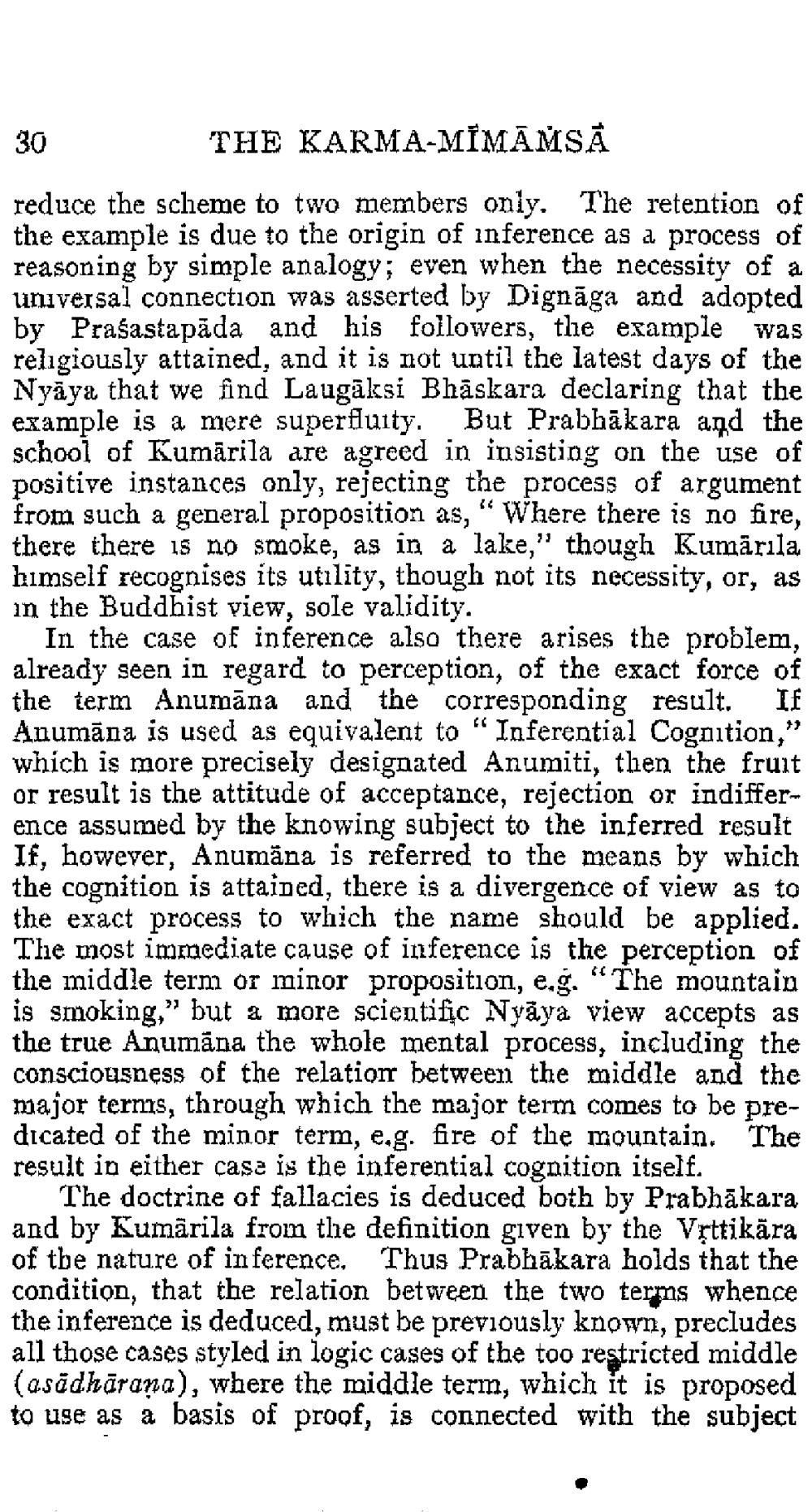________________
30
THE KARMA-MIMĀMSĀ
reduce the scheme to two members only. The retention of the example is due to the origin of inference as a process of reasoning by simple analogy; even when the necessity of a universal connection was asserted by Dignāga and adopted by Prasastapāda and his followers, the example was religiously attained, and it is not until the latest days of the Nyāya that we find Laugāksi Bhaskara declaring that the example is a mere superfluity. But Prabhākara and the school of Kumārila are agreed in insisting on the use of positive instances only, rejecting the process of argument from such a general proposition as," Where there is no fire, there there is no smoke, as in a lake," though Kumärıla himself recognises its utility, though not its necessity, or, as in the Buddhist view, sole validity.
In the case of inference also there arises the problem, already seen in regard to perception, of the exact force of the term Anumāna and the corresponding result. If Anumāna is used as equivalent to "Inferential Cognition," which is more precisely designated Anumiti, then the fruit or result is the attitude of acceptance, rejection or indifference assumed by the knowing subject to the inferred result If, however, Anumana is referred to the means by which the cognition is attained, there is a divergence of view as to the exact process to which the name should be applied. The most immediate cause of inference is the perception of the middle term or minor proposition, e.g. "The mountain is smoking," but a more scientific Nyāya view accepts as the true Anumāna the whole mental process, including the consciousness of the relation between the middle and the major terms, through which the major term comes to be predicated of the minor term, e.g. fire of the mountain. The result in either case is the inferential cognition itself.
The doctrine of fallacies is deduced both by Prabhākara and by Kumärila from the definition given by the Výttikära of the nature of inference. Thus Prabhākara holds that the condition, that the relation between the two terms whence the inference is deduced, must be previously known, precludes all those cases styled in logic cases of the too restricted middle (asādhārana), where the middle term, which it is proposed to use as a basis of proof, is connected with the subject




